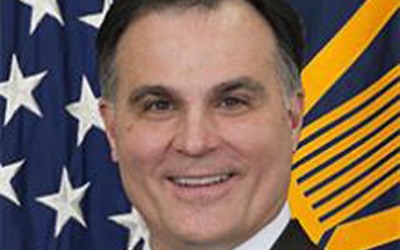To listen to the Federal Newscast on your phone or mobile device, subscribe in PodcastOne or Apple Podcasts. The best listening experience on desktop can be found using Chrome, Firefox or Safari.
- There are still some issues with the training of sailors in charge of driving ships. The Government Accountability Office said the Navy needs to implement ways for sailors to provide feedback on training, and it needs to develop a plan to use information from logbooks that sailors use to document ship-driving experience. The Navy made significant changes to its training after ship collisions in 2017. As a result, the Navy increased training hours and added extra classroom and simulation time. (Government Accountability Office)
- The National Treasury Employees Union bargaining unit at the Social Security Administration will keep its telework program. The Federal Service Impasses Panel said the telework program NTEU bargained for should stay intact. SSA wanted to be able to change the telework program for 2,100 hearings office employees but didn’t specify what changes it wanted to make. This latest decision comes as SSA plans to end its telework program for some 11,000 customer service employees next week. (Federal News Network)
- Unions at the Department of Veterans Affairs have until Jan. 10 to decide whether they’ll pay rent on currently occupied, government-owned office space, or leave. VA said it’ll provide rental costs for their occupied space next month. Unions are expected to leave by Jan. 31 and return all VA-owned property and equipment. It’s part of VA’s efforts to enforce all provisions of the president’s 2018 executive orders on collective bargaining and official time. (Federal News Network)
- The Department of Homeland Security is looking for a new CIO. John Zangardi left the post for a private sector role. Zangardi told staff in an email obtained by Federal News Network that his last day was Friday, Nov. 15. Sources said Zangardi will be joining Leidos as an executive vice president in late November. Beth Cappello, the DHS deputy CIO, is expected to be the acting CIO. She joined headquarters earlier this fall from the Immigration and Customs Enforcement directorate. Among Zangardi’s accomplishments over the last two years are the department’s move to Windows 10 and the creation of a cloud center of excellence. (Federal News Network)
- DHS is spending more than $2.2 million a year to assess the cyber vulnerabilities of critical infrastructure systems. It wants to know if its current collections process still makes sense. The department issued a request for comments on its approach that includes site visits and questionnaires. Among the questions DHS wants feedback on pertain to the accuracy of the information collected and the burden on critical infrastructure providers. Comments are due Dec. 16. (Federal Register)
- The groundwork is being laid for the future of supercomputing. The White House’s Office of Science and Technology Policy issued an update to its National Strategic Computing Initiative. The updated strategy looks at ways to build a foundation for advances in supercomputing by improving cybersecurity and access to data. OSTP also stood up a Fast Track Action Committee on Strategic Computing this summer to address these issues. The initiative serves as an update to a 2016 strategy released by the Obama administration. (White House)
- The National Oceanic and Atmospheric Administration proposes a set of new strategies, and seeks comments from the public. NOAA wants to expand the application of unmanned systems, artificial intelligence, cloud computing, and a field called ‘omics. ‘Omics’ refers to analysis of materials like DNA and proteins. Officials rolled out the draft strategies at a White House summit last week, a summit emphasizing partnerships with the private sector including academia in NOAA’s scientific work. The public can comment on the new strategies through Dec. 16. (National Oceanic and Atmospheric Administration)
- The House Modernization Committee is looking at ways to move member offices to agile procurement procedures and greater use of shared services rather than have individual members purchase their own IT equipment. House Inspector General Michael Ptasienski told the committee the House could cut costs by putting its Chief Administrative Office in charge of an approved products list and centralize the purchasing of office items like computers, printers and copiers. (Federal News Network)
- The Pentagon has failed its second year of financial audits. The results show the department is, in many ways, facing an uphill battle. A year ago, the team of more than 1,400 auditors made more than 2,400 recommendations to fix DoD’s finances. The second audit, released Friday, shows the department has fixed only about 500 of those problems. And in the meantime, auditors made 1,300 new findings. They’ve also identified more serious financial problems known as “material weaknesses.” Last year’s audit turned up 20. As of now, there are 25. (Federal News Network)
- The Air Force wants more women to apply to be pilots even if they don’t meet the height requirements. Pilots are supposed to be between 5-foot-4 and 6-foot-5; however, the Air Force said there are many ways to work around those restrictions. Currently, almost 45% of women aged 20-29 don’t meet the height standards. The Air Force said it’s making a push for more women to apply for waivers to be pilots because the service wants to increase diversity in its ranks. (Federal News Network)
Copyright
© 2024 Federal News Network. All rights reserved. This website is not intended for users located within the European Economic Area.
